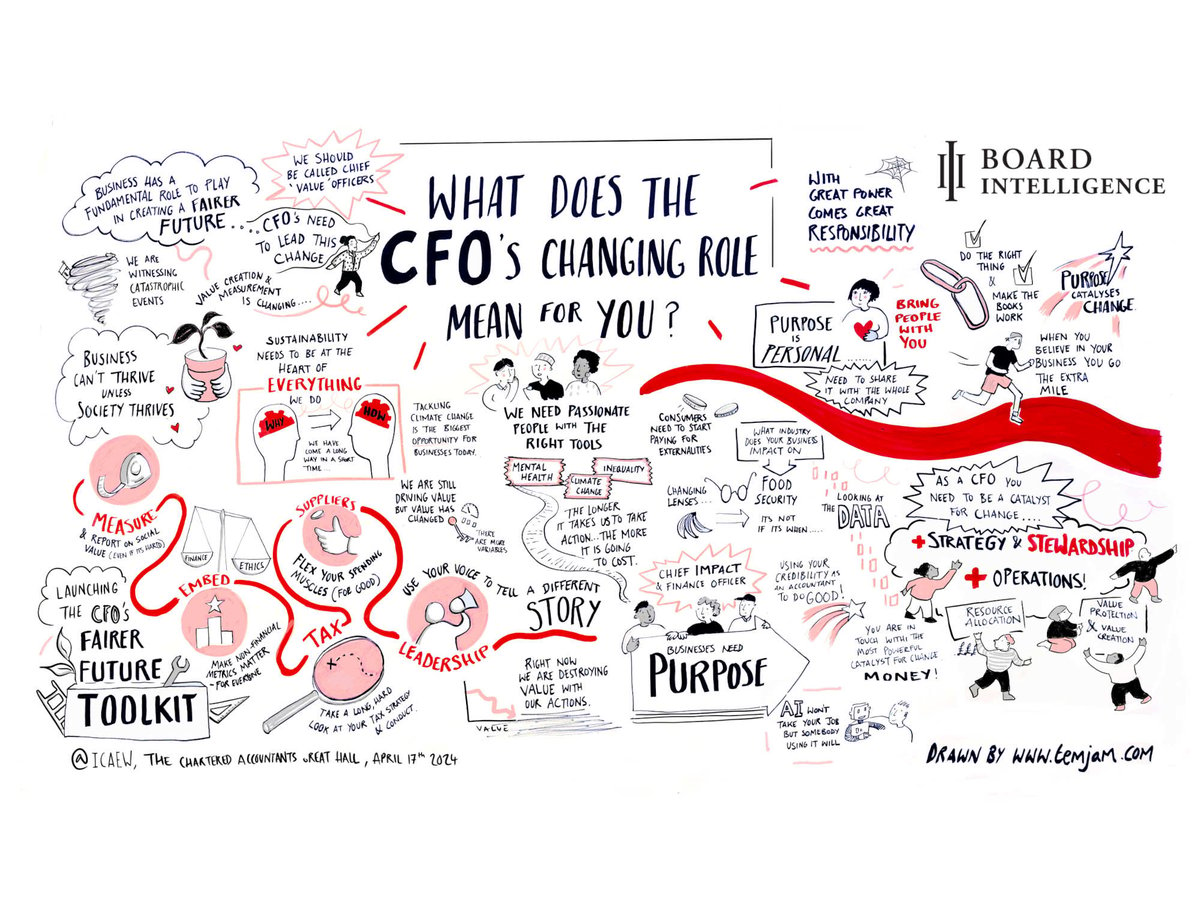At our recent event, Beyond Finance: The Changing Role of the CFO, we brought together more than 150 CFOs to discuss how finance leaders are doing their bit to build a fairer future.
The consensus in the room was aligned with the findings of our research: that the CFO’s role is changing at pace, but that CFOs already are playing a leading role in changing how businesses measure and drive value.
CFOs know – perhaps better than anyone – that businesses cannot be myopically self-interested if they want to survive. They need a healthy society and environment in which to operate, and the standards expected by customers, employees, regulators and some investors are getting higher.
But as you might expect from a room full of CFOs, there was a note of scepticism – not about the rights and wrongs of what they were trying to do, but about the practicalities.
It’s all very well to set Net Zero targets, for example, but achieving them is rarely in a single company’s gift, let alone its CFO’s. They can try to influence customers to do the right thing, but they cannot force them.
And while we heard examples from CFOs who had chosen suppliers with higher ethical standards over others that offered better financial value, not every firm is in a position to sacrifice short term profitability for the greater good.
Investors have a role to play, too. Some CFOs spoke about the benefits of working with supportive shareholders, but many public companies have little choice over who gets a vote at their AGM.
Indeed, it’s usually the companies with patient, ethical investors who talk about how patient and ethical their investors are. The ones who are silent on the matter may have less pleasant stories to tell. Sadly, this may be becoming more common, at least in the United States where there’s been an investor backlash against ESG.
That’s why it was particularly interesting to hear one CFO talk about facing off against harder-nosed, more financially oriented shareholders. Instead of trying to convince them that social and environmental impact was worth their attention because it’s ‘the right thing to do’ they instead spoke of longer-term financial costs, risks and opportunities. The translated social and environmental impact into bottom line impact so they were speaking the same language.
What CFOs can do
That story points to the wider role the finance function has to play. Increasingly, CFOs are exhibiting softer skills that weren’t traditionally associated with finance leaders, in particular influencing the chief executive, shareholders and the board towards positive action.
“Today, I think it’s much more difficult to be a successful CFO unless you are also a great communicator.”
~ Kelly Smith, CFO, Kantar – read the interview
Their position as gatekeeper of financial value makes them uniquely effective at this. Amplified by the same robust, rigorous analysis and reporting they use to drive financial value, the CFO’s voice gets heard.
We shouldn’t expect them to stop caring about hard numbers. CFOs are there to maximise value creation. But by redefining value to account for externalities like climate change, CFOs have a crucial role to play in changing what that value looks like – the problems businesses solve, and the questions they ask.
It’s true that only systemic change can create a fairer future. The CFOs in the room were under no illusions about that. But systemic change will only happen when the participants in those systems push for it, and the more they push – and the more intelligently they do so – the faster it will happen.
Our report, The CFO’s Fairer Future Toolkit, examines the levers that CFOs can pull to change how their business relate to the world around them. You can contribute to the next phase of our research here.



